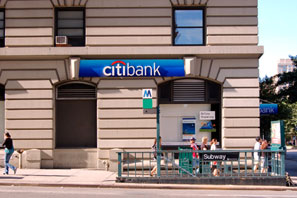
In her 1961 classic, The Death and Life of Great American Cities, Jane Jacobs lamented how top-down urban renewal had harmed the city streetscape. Billions in government spending had created “monopolistic shopping centers,” she contended, “lackluster imitations of standardized suburban chain-store shopping.” A half-century later, New York has the same problem, but for different reasons.
Banks, drugstores, and other large chains are replacing small shops and restaurants, even financially successful ones. Small businesses can’t afford the rents that tenants like TD Bank and CVS can pay. With industry data showing that the average asking retail rent in Manhattan jumped 22 percent in the past decade (after inflation), landlords in prime spots are happy to kick healthy businesses out months or even years before finding a new tenant. It’s worth the wait, they figure. The same logic applies to new spaces, which often stand empty.
Finally, a reason to check your email.
Sign up for our free newsletter today.
Banks have proliferated the fastest. FDIC data show that between 2000 and 2013, the number of bank branches in New York State grew from 3,416 to 4,415—and New York City, with nearly two-thirds of the state’s banks, was responsible for that 29 percent growth. Eighth Avenue between 50th and 59th Streets boasts branches of Bank of America, TD Bank, Chase, and Citibank, three of which opened in the last decade. The banks overwhelm their blocks and leave them with not much going on at night.
Every community needs banks, of course, but market demand isn’t driving this expansion. (When was the last time you stepped inside a bank?) Rather, seven years’ worth of zero-percent interest rates from Washington have kept banks doing well—as did the previous two decades of low interest rates, encouraging American consumers to keep borrowing. Other global chains have taken advantage of these friendly interest rates to rent up Manhattan space as well. There are also other factors at work in the retail rent spike, including the surge in global tourism. But for small businesses, the reality is plain: Manhattan is becoming unaffordable.
To help small businesses, Manhattan borough president Gale Brewer has proposed some fixes, and they’re worth debating. First, she notes that “if you are an entrepreneur who does business between 96th Street and Chambers Street . . . the cost of doing business will likely include the commercial-rent tax,” which applies to tenants who pay $250,000 or more a year in rent. “It turns out that this threshold is easier for a small business to reach than one might expect.” Brewer wants to raise the $250,000 threshold, while preventing landlords from passing on the cost of higher property taxes to commercial tenants. Of course, it would be better, and simpler, to cut New York’s high commercial property taxes.
Brewer also wants to amend city zoning so that the New York City Housing Authority can remodel ground-level space and rent it out at reasonable rates to shopkeepers. The money would help NYCHA deal with its multibillion-dollar capital deficit. And busy stores would provide the Jane Jacobs–style “eyes on the street” storefronts “that help create vibrant and safe neighborhoods.”
Most controversially, Brewer wants to force landlords to give small businesses 180-day notices of eviction and to require landlords and tenants to mediate lease-renewal disputes. If mediation didn’t help, landlords would have to give tenants one year to get out (at a 15 percent rent hike). This proposal likely wouldn’t help much, though, as it could make landlords even more reluctant to rent to small tenants.
Still, Brewer’s ideas indicate that she understands the importance—and the plight—of the city’s residents and small entrepreneurs. Do we really want a Manhattan dominated by subsidized banks and global chains?
